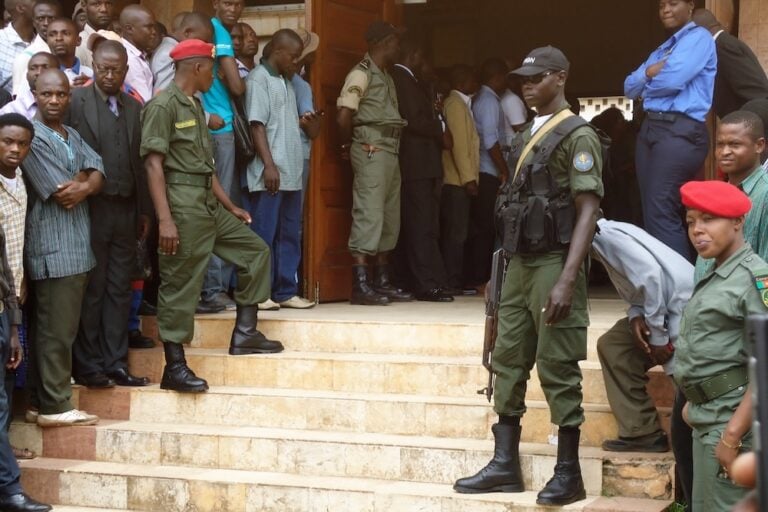**Updates previous IFEX alert of 6 April 2000** (RSF/IFEX) – In a letter to Justice Minister Robert Mbella Mbappé, RSF protested the six-month prison sentence against Michel Pekoua, managing editor of the private weekly “Ouest-Echos”. RSF asked that the journalist be acquitted during the appeals process. The organisation recalled that international human rights organisations believe […]
**Updates previous IFEX alert of 6 April 2000**
(RSF/IFEX) – In a letter to Justice Minister Robert Mbella Mbappé, RSF protested the six-month prison sentence against Michel Pekoua, managing editor of the private weekly “Ouest-Echos”. RSF asked that the journalist be acquitted during the appeals process. The organisation recalled that international human rights organisations believe that detention for press offences, in this instance defamation, is considered out of proportion to the harm suffered by the victims. As such, in a document dated 14 July 1992, the United Nations Commission on Human Rights stressed that “detention as punishment for the expression of an opinion is one of the most reprehensible means to enjoin silence, and as such constitutes a serious violation of human rights”. RSF Secretary-General Robert Ménard added: “That is why nowadays no democratic state passes prison sentences in cases involving the media.”
According to the information collected by RSF, on 4 April 2000, Pekoua was sentenced to six months in prison for “defamation, insults and circulation of false information” by the court in Bafoussam (in the country’s western region). The journalist, who must also pay a fine of 800,000 CFA Francs (approx. US$1,170, 1,200 euros) in damages and interest, was immediately jailed at the end of his trial. The sentence follows the filing of a complaint by the director-general of the Société nationale des hydrocarbures (SNH). In July 1999, the weekly had published a memorandum written by SNH employees in which the director-general’s management of the company was criticised. In August 1999, the authorities had asked Pekoua to reveal the names and addresses of the memorandum’s authors. The journalist had refused, citing the press law, Article 50 of which guarantees the protection of sources.


